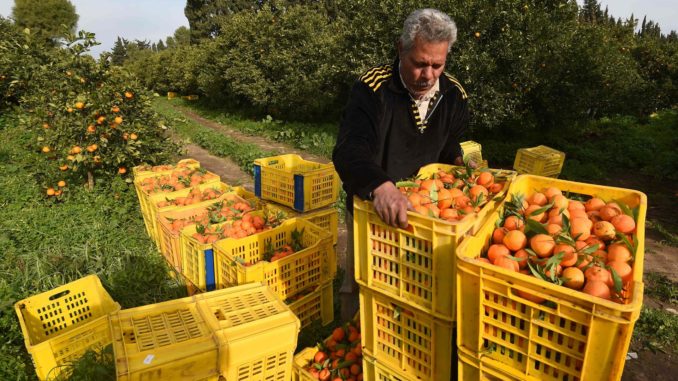
Tunisian farmers have warned that thousands of tonnes of oranges might have to be destroyed if more buyers cannot be found for the country’s bumper harvest.
According to Mohamed Ali Jandoubi, who heads the Groupement Interprofessionel des Fruits (GIF), an association of citrus fruit growers, farmers have harvested 550,000 tonnes of oranges so far this year.
“Over the past five years we reached a ceiling of 400,000 tonnes. This year we’ve harvested 550,000 tonnes. It’s huge,” said Jandoubi.
Half of the crop could be destroyed if not enough buyers were found, the Tunisian Union of Agriculture and Fishery recently warned, with only 10% of the harvest expected to be exported.
Jandoubi said the bumper harvest was due primarily to prevailing dry weather conditions and “physiological conditions” which meant the orange blossoms and the fruit held on to the trees.
Around 12,000 families work in the orange industry, Jandoubi said, warning the record harvest would not spell good news if there are no buyers.
France favours the so-called Maltese orange specific to Tunisia.
Orange growers hope to tap more into the French market to increase sales, and are hoping to promote Tunisia’s oranges during the Paris agriculture salon, which takes place from 25 February to 5 March.
Russia could be another market for Tunisian oranges, although they could face tough competition with fruit from Egypt and Turkey.
Meanwhile orange farmers have urged the authorities to help them develop their industry and find alternative uses for oranges, such as in juices and cosmetics.
Tunisia’s economy, of which agriculture is a key sector, has been impacted by social unrest since the 2011 Arab Spring and by a string of jihadist-claimed attacks, including on its vital tourism industry.
Last year, strong exports including dates and olive oil helped Tunisia’s economy “avoid the worst”, the finance ministry has said.
In 2015-2016, the North African country exported a record 110,000 tonnes of dates, a 10% increase on the previous year, and a rare boost for the economy.
2015 was also a record year for Tunisia which was elevated to the world’s number one exporter of olive oil.
